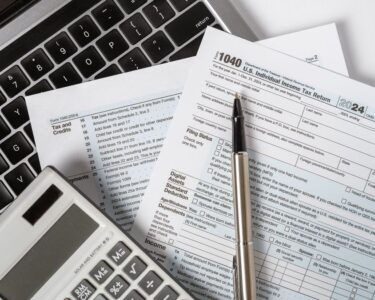There likely is money with your name on it just waiting for you! About one in seven Americans has unclaimed cash tucked away in forgotten bank accounts, deposits, refunds and retirement plans. Tracking it down is easy and free. Just follow these steps to claim what’s yours!
Start your search easily
Log on to MissingMoney.org, type in your first and last name, and the state where you live, advises Carmen Pigler, president of the National Association of Unclaimed Property Administrators. This free website helps reunite people with unclaimed cash that state treasurers are holding from all sorts of sources, “including uncashed paychecks, the contents of safety deposit boxes, tax returns, life insurance policy payouts, rent deposits or refunds,” she says.
“If you’re owed funds, you’ll see your name listed and who owes you.” Then click the link that takes you to your state’s website or a page where you can apply to retrieve it. “Filing a claim isn’t complicated—every state has made the process as simple as possible,” she says from firsthand experience. “I searched MissingMoney.org myself, and sure enough, I found my name listed. It was for an insurance refund from six years ago. All I had to do was show my driver’s license to prove who I was. In just 10 days, I had a check for about $400!”

And if at first you don’t succeed, well, you know the drill. If you’ve lived or worked in more than one state, restart your search and select “Search All States.” “One of the biggest reasons Americans leave money behind is that so many of us move,” notes Pigler. Type in different variations of your name too, like your maiden name, because you could have money owed to you that stretches back decades.
Track down ‘career cash’
If you’ve changed jobs over the course of your career and suspect you have money owed to you, reach out to your former employer’s human resources department, says Craig Copeland, Ph.D., Director of Wealth Benefits Research at the Employee Benefit Research Institute. More ways to find cash from a former job:
1. Find an old 401(k)
To locate a retirement account from an employer no longer in business, check your statements or other documents for the recordkeeper, such as Fidelity or Vanguard, and contact them to see if they still manage your account,” advises Copeland. You can also use the U.S. Department of Labor’s Abandoned Plan Search tool at AskEBSA.DOL.gov/AbandonedPlanSearch. Enter a few details about your 401(k) plan, including its name and your employer’s name—to find out where the previous manager transferred your funds and how to access them.

2. Pinpoint a pension
To track down a pension from a privately owned business—like a corporation or nonprofit—use the Pension Benefit Guaranty Corporation (PBGC) search tool at PBGC.gov/wr/find-unclaimed-retirement-benefits. This database lists pensions from private employers whose plans ended and were insured by PBGC.
Looking for a public pension from a government job? Former federal workers can contact the U.S. Office of Personnel Management at OPM.gov/retirement-services. And state or local government former employees can use the National Association of State Retirement Administrators website at NASRA.org.
3. Get your back pay
If you think a business may owe you unpaid wages or tips, the Department of Labor’s Workers Owed Wages free search tool at webapps.DOLgov/wow can help locate the money you’re owed.
Make it an annual hunt
Consider adding a reminder on your calendar to check these websites once a year, suggests Pigler. Companies hold on to unclaimed money for three years before sending it to the state treasurer. So cash that’s accidentally left behind today—like a security deposit after you move—would show up when you do a search 36 months from now.






